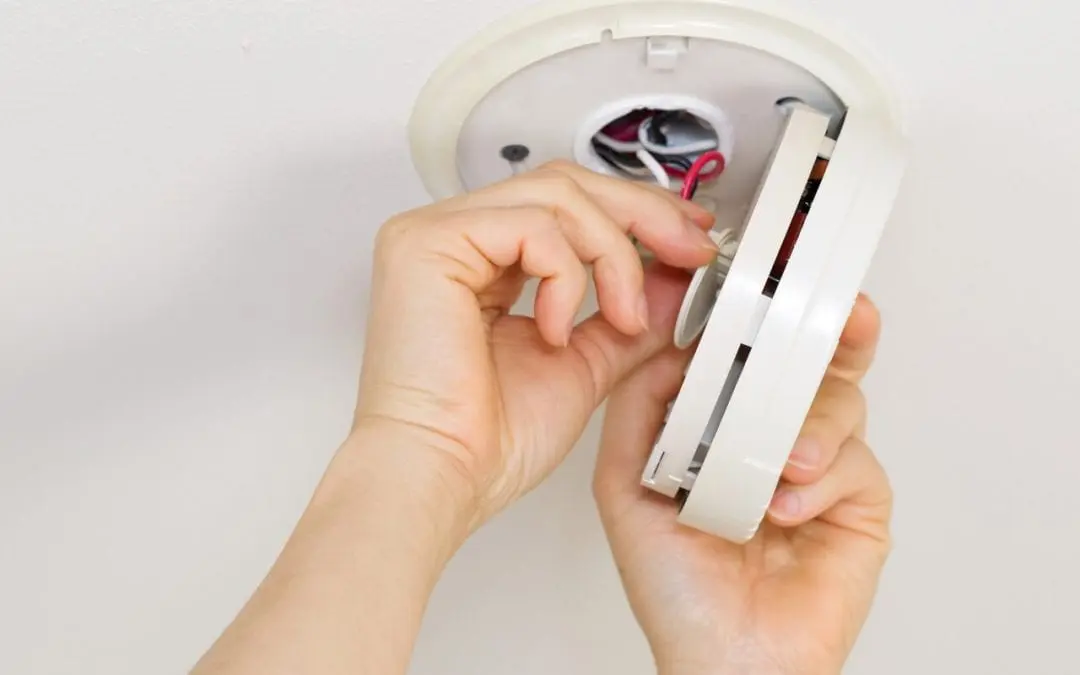1. Plan a Fire Escape Route from the Home
Work with your family to develop a fire escape plan and then practice it during daylight hours. If you have young children, drills will help them be more prepared so they know how to respond in case of fire. Designate a meeting place a safe distance from the home and talk about alternate routes out of the house.
Teach your children to check doorknobs before opening a door. If it is hot, do not attempt to exit that way. Everyone should practice leaving the home out of a window. Make sure each bedroom has two exits; most often these are the door and a window. If the bedroom is on a second story, install a safety ladder, and make sure your family knows how to use it.
2. Electrical Safety Tips
To help prevent fire, review electrical safety in your home. Electrical problems can lead to damaged appliances or a house fire. Repair or replace appliances with frayed cords and don’t overload outlets or extension cords. Either problem can cause the cable to overheat and ignite furniture, flooring, or drapes.
Do not place any electrical cords underneath rugs or doormats. As people walk over them, they can sustain damage, become hot, and start a fire. When replacing light bulbs, follow the manufacturer’s wattage recommendation.
3. Fire Extinguishers are Important for Fire Safety in the Home
Fire extinguishers are essential safety items that will help you put out small flames or give you extra time to escape from a fire. Install an extinguisher in the kitchen, garage, utility room, and on every floor of the home. There are several kinds of extinguishers designed for different types of fires. When selecting one, make sure it is appropriate for the room where you are installing it.
When discussing fire safety with your family, include a lesson on how to operate these devices. Use the word “PASS,” which stands for: pull the release pin, aim the nozzle at the base of the fire, squeeze the handle, and sweep the extinguisher back and forth.
4. Fire Safety in the Home: Smoke Detectors
By far, the most important devices a homeowner should install are smoke detectors. Smoke detectors save lives. There should be one placed inside and outside of every bedroom in the hallway. For multi-story properties, install a device on each floor.
In most regions, smoke detectors are not required in the garage because other fumes might set off an alarm. However, garage fires can occur. To help protect your home and family, install a detector in the room adjacent to the garage so you’ll be alerted to flames before they enter the living space.
Smoke detectors in kitchens can trigger a false alarm when you’re cooking. Manufacturers have created wall-mount styles with quiet buttons. In the event they go off while preparing a meal, you can push the silence button to disarm it temporarily. You can also place your smoke detector 10 feet away from appliances for fewer false alarms.
Test your smoke detectors monthly and change the batteries twice a year. You can set a reminder on your phone or simply change all smoke detector batteries when the time changes in the spring and fall.
Bronze Star Home Inspections provides inspection services to the Dallas – Fort Worth Metroplex area. Contact us to schedule your appointment.

